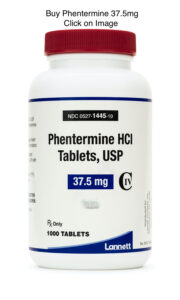| Product Name: | Phentermine (Adipex) |
| Strength: | 37.5mg |
| Available packages: | 30, 60, 90, 120, 160, 200, 250, 300 pills |
| Payment Method: | E-Check | MASTERCARD |
| Price per pill: | From $3.00 |
| Shipment: | Express Delivery Service |
| Buy Now From: | VISIT PHARMACY |
Phentermine is a prescription medication most commonly used as a short-term aid for weight loss. While effective when used under medical supervision, it brings up common workplace testing concerns—particularly about whether it appears on drug tests and how this may affect employment screenings. Let’s explore the nuances.
1. Understanding Phentermine & Its Role
Phentermine, approved in 1959, functions as a stimulant that suppresses appetite by elevating dopamine and norepinephrine levels in the central nervous system—placing it in a similar chemical class as amphetamines.
2. How Drug Tests Screen for Substances
Most standard workplace and rehabilitation settings rely on initial immunoassay screenings (e.g., urine tests) that detect drug classes rather than individual compounds. These tests utilize antibodies to identify antigens; however, they can sometimes misidentify similar substances.
3. Phentermine & False Positives for Amphetamines
Phentermine doesn’t directly register as a standalone drug on routine screens, but because of structural similarities, it can trigger false positives for amphetamines on immunoassay tests.
-
GoodRx lists phentermine among medications that may cause false-positive amphetamine results.
-
WebMD similarly warns that, without a legitimate prescription, phentermine could “raise a false red flag” in drug screenings.
4. Detectability: How Long Phentermine Stays in the System
Detection windows vary based on testing type, dosage, and individual factors like metabolism:
-
Urine Tests (most common): Typically detect phentermine for 1–4 days after the last dose, though heavy or regular usage could extend that window.
-
Blood Tests: Usually detect phentermine for up to 24 hours post-dose.
-
Saliva Tests: Detectable for about 1–2 days.
-
Hair Follicle Tests: May reveal use for up to 12 weeks, or even 90 days—though less common for phentermine testing.
5. Confirmatory Testing & Legal Clarity
If an initial immunoassay screening shows positive for amphetamines, laboratories typically proceed with a more precise confirmatory test like GC/MS (Gas Chromatography–Mass Spectrometry).
-
According to a Dr. D. Love via JustAnswer, confirmatory testing can reliably distinguish phentermine from amphetamine.
-
In military protocols, initial positive screens are always confirmed; and importantly, phentermine does not produce a confirmed positive nor affect military drug-testing clearance.
6. What to Do If You’re Prescribed Phentermine and Tested
-
Disclose your prescription beforehand. Letting your employer or lab know in advance helps them interpret results properly.
-
Carry documentation. Bring a copy of your prescription or a doctor’s note to the test site.
-
If a false positive occurs, request a confirmatory test—these are far more accurate and can clarify that the result stems from lawful, physician-supervised use.
-
As the military guidance notes, documentation and medical records can prevent misunderstandings and ensure procedural fairness.
7. Summary Snapshot
| Test Type | Detection Window | Notes |
|---|---|---|
| Urine | 1–4 days (possibly longer) | May show false positives for amphetamines |
| Blood | ~24 hours | Less commonly used; confirms recent use |
| Saliva | 1–2 days | Rare in formal screening contexts |
| Hair Follicle | Up to 12 weeks | Used mainly for long-term or forensic investigations |
| Immunoassay Screening | Immediate | Vulnerable to structural cross-reactivity |
| Confirmatory Testing | Variable | Accurately distinguishes phentermine from amphetamine |
Final Thoughts
Phentermine can appear on common drug tests, but typically as a false positive for amphetamines, not as itself. Its presence in urine, blood, saliva, or hair depends on both the test type and how recently—and how frequently—the drug was used. However, confirmatory testing provides clarity and can correctly identify phentermine, allowing individuals with a legitimate prescription to navigate workplace or military protocols without undue penalties.
If you’re taking phentermine and subject to a drug test, upfront disclosure and proper documentation are your best protection.







